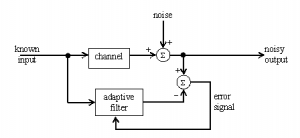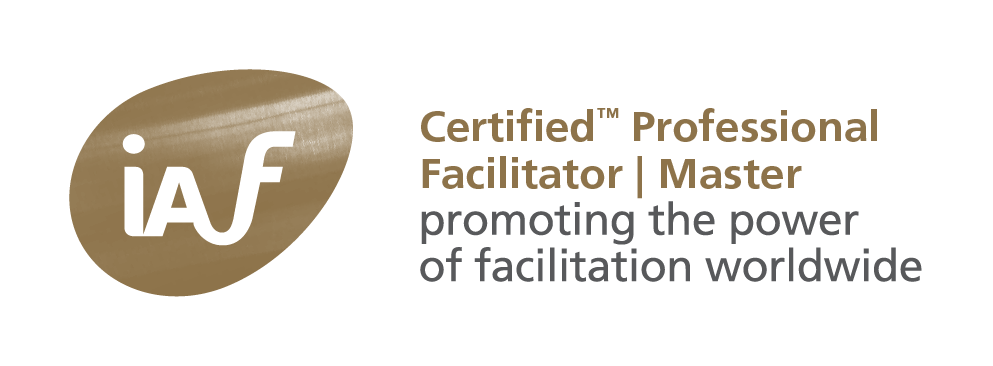This is part of discussion in Linked-In group Systems Thinking about the definition of complexity
 Complex as a response to complexity
Complex as a response to complexity
Over a year ago, I was in a session with a very good friend of my, who introduced us to “Complex Adaptive Systems”. The session ended in total confusion, you might well say: it had become “complex”. I suddenly realized that the psychologist Carl Jung uses the term “complex” for the compensatory mechanism in the human psyche or soul. The complex arises from our need to adapt to our “context” (we generally use the term “environment”, but you could also call it “family”) So “complex” is the manifestation of a “complex adaptive system”: complex is recursive and as such, just another word for “system”, something we also find hard to define.
Another aspect is our tendency to try to get a grip on our context, environment, situation. We have a need to survive and have developed this idea of having to be “in control”. And when we’re not in control, there should be something that “is”. In my opinion, this is a condition for tool making. In order to make and to use a tool, you must control the tool. If you do not control the hammer, or a broom ….
So tool making – as a way to adapt to our environment – lead to the belief (or assumption) that either we should be in control or we’re being controlled. In my opinion, it is both, but not at the same time (i.e. a paradox). You make the choice yourself, but have to stay responsible for the consequences of you choices. A bit like the sorcerer apprentice: when you let the broom fill the well, you cannot fall asleep.
Tool as language as tool as …
Language – according to Rik Smits, Hoe Taal de Mens maakt, – is a by-product of tool making. I agree with him, the signs of this are all over in our language. Language is a meta-tool: you need to have a concept of a hammer to invent a hammer. Use of “invent” intentionally, as I adhere to the notion of an “invented reality”. When we invented hammer, we also invented a (new) reality, a.k.a. environment or “complex”. Recursion again.
But it gets worse (more complex): as language is also a tool: we want to use it “to get a grip” on its meaning, its use and the definition of terms. We are lead to believe, that when we have the correct definition, we know how to use the tool. It is a bit like Alice in the Forest of “no names”: when the deer doesn’t know your name, it cannot be afraid of a human being.
However, when we define a word, we also make choices and what we didn’t choose hasn’t gone away. So when we choose “hammer” for a hammer, we’re also stuck with “not a hammer”. We use our ability to choose “not a hammer”, when we use a shoe or a screw driver to hammer a nail. My mother would say: “that’s not a hammer”. In making the choice, “not a hammer” has become part of “complex”. In order to adapt, we create a “complex adaptive system”.
To add insult to injury (that’s what happens, when you use hammers in philosophy 🙂 ): “… referring to something being non-integrable” (note: quoting from the discussion) IS the very essence of complexity. You cannot control “complex” by defining it; you cannot control complex by definition.
Pay attention please
Here is my most quoted quote from Alice:
When I use a word,’ Humpty Dumpty said, in rather a scornful tone, ‘it means just what I choose it to mean — neither more nor less.’
‘The question is,’ said Alice, ‘whether you can make words mean so many different things.’
‘The question is,’ said Humpty Dumpty, ‘which is to be master — that’s all.’
…. and ….
‘When I make a word do a lot of work like that,’ said Humpty Dumpty, ‘I always pay it extra.’
So just pay extra (with attention), when a word like “complex” is being coined (!). There probably is a hidden meaning about the context, or somebody is playing hide-and-seek.
Dealing with complexity yourself
The real problem is the conception of reality inside our selves: we’re in the business of inventing reality. This, I’m a bit like “nobody expects Spanish Inquisition”, and realizing that shared understanding is the result of working together and not a kind of precondition (again, I’m referring to the discussion: https://www.linkedin.com/grp/post/2639211-6035041153236160516 ).
At the moment, I’m developing the idea of the Lelie cycle, as a compensatory mechanism for the Deming cycle. The rational approach to complexity is PDCA, Plan –> Do –> Check –> Act –> …; the irrational approach works like this ACDP:
Act: do something, based on instinct, intuition or feeling ->
Check: check yourself: is this what I really want? Is this bringing us closer to what we intuited or felt or need? –>
Do: go on, or change and do something else (–> Act) —>
Plan: write a plan, create a history, tell others —->
I developed this approach and a friend and colleague pointed out, that this is how the cynefin (which means “Heimat” or “home-as-in-upbringing”) model approaches complexity: just “probe” (in Dutch, the word “proberen” means “to try out”).




